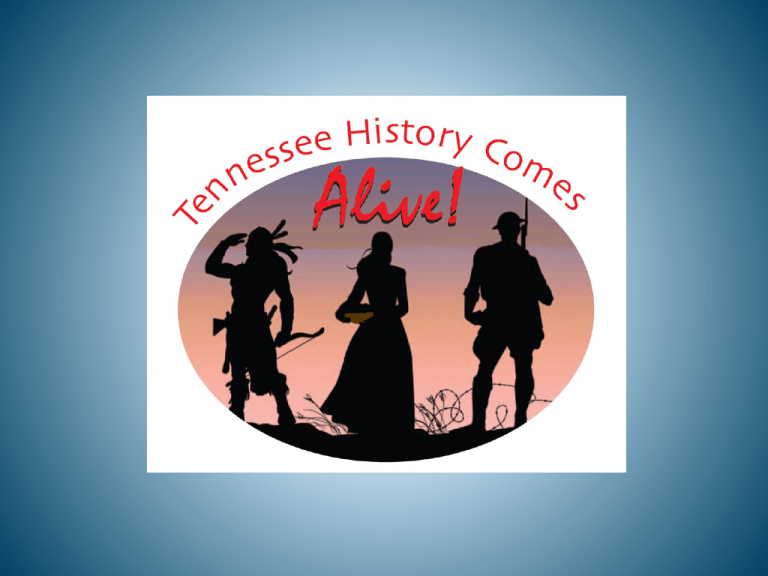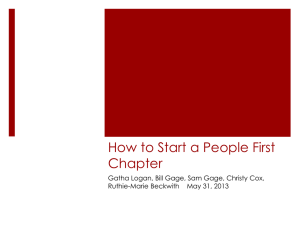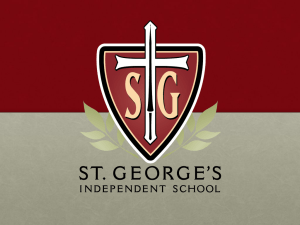Free Admission Special Activities for Children
advertisement

The Tennessee State Museum is honored to present this exhibit in partnership with the Tennessee General Assembly Arts Caucus, Douglas Henry State Museum Commission, and Tennesseans for the Arts. This exhibit, open from March 17 to August 29, 2010, celebrates the treasures of the museum’s permanent collection. The museum offers extensive historical exhibits for the education and enjoyment of the public. Many exciting artifacts made and used by Tennesseans during the past are on display. These objects tell us about the struggles and achievements of our forebearers and inspire today’s Tennesseans. The Tennessee State Museum is a place where visitors can reflect on the past and plan new and brighter futures. In this exhibit, members of the Tennessee General Assembly Arts Caucus have selected artifacts from the permanent collection. They share thoughts on how their choices reflect enduring values of Tennesseans that have influenced the history of our state. Tennessee History Comes Alive Family Day, May 8, 1-4 p.m. Free Admission Special Activities for Children On Saturday, May 8, the exhibit will literally come alive as interpreters dressed in period costumes portray individuals from our state’s past. Visitors will have the opportunity to interact with historical characters such as a frontier long hunter, Civil War soldier, and woman’s suffragette while touring the exhibit, and can participate in special games and hands-on activities for children. Tennessee History Comes Alive Family Day begins at 1:00 p.m. and continues until 4:00 p.m. The public is invited to attend free of charge. Musket, 1763-1780, owned by Daniel Boone, selected by Rep. Jimmy Matlock, Lenoir City Print, 1819-1836, “Cherokee Village of Toqua,” by C. Motte, selected by Sen. Randy McNally, Oak Ridge Conestoga Wagon, early 1800s, owned by the Thomas Family of Blountville, selected by Rep. Tony Shipley, Kingsport Dulcimer, 1832, made by Dr. Neil McNeil of Sneedville, selected by Sen. Mike Faulk, Kingsport Sword, 1785-1800, owned by General Jethro Sumner, for whom Sumner County was named, selected by Rep. Debra Maggart, Hendersonville Sword, 1780, used by statesman John Rhea during the American Revolution, selected by Lt. Gov. Ron Ramsey, Blountville Table, 1790s, from Knoxville Gazette office, selected by Rep. Joe Armstrong, Knoxville Portraits, 1818, by unknown artist, showing Robert and Elizabeth Banks Boyers of Gallatin, selected by Sen. Diane Black, Gallatin Slant Front Desk, 1804-1814, descended in the Samuel McAdoo family of Wilson County, selected by Rep. Susan Lynn, Lebanon Secretary Desk, 1833, made by John Erhart Rose of Knoxville, selected by Sen. Tim Burchett, Knoxville Watch, 1796, presented by Territorial Governor William Blount to newly elected Governor John Sevier, selected by Sen. Doug Overbey, Maryville Portrait of John Overton, 1830, attributed to Washington B. Cooper, selected by Rep. Steve McManus, Cordova Blanket, late 1800s to early 1900s, made by Mary Ellen Holland York of Clay County, selected by Rep. Les Winningham, Huntsville Tobacco Barn, 1800s, selected by Sen. Charlotte Burks, Monterey Sword, early 1800s, once owned by Sam Houston, selected by Rep. Gerald McCormick, Chattanooga Saddlebags, 1800s, owned by the Reverend Asbury Smith, selected by Rep. Jim Hackworth, Clinton Surveying Transit, early 1800s, used by John Eakin of Blount County to map out the town of Morganton, selected by Rep. Joe McCord, Maryville Secretary Desk, 1845-1855, sold by Titus Woods & Company of Memphis, Sen. Mark Norris, Collierville Portrait, about 1856, The Turner Children of LaGrange, TN, by H. A. Tatum, selected by Sen. Dolores Gresham, Somerville Desk, 1860-1870, used in a one-room school house, selected by Rep. Jim Coley, Bartlett Secretary and Bookcase, 1860-1870, by John D. Miller of Franklin, selected by Rep. Charles Sargent, Franklin Sofa, 1857, owned by John Berrien Lindsley and Sarah McGavock Lindsley of Nashville, selected by Rep. Beth Harwell, Nashville Derringer Pistols, 1840-1869, sold by Frederick H. Clark & Co. of Memphis, selected by Rep. Mike Kernell, Memphis Long Rifle, 1830-1860, made by gunsmith Meser Ensley of Bradley County, selected by Rep. Kevin Brooks, Cleveland Painting, 1887, “In the Tennessee Mountains,” by George W. Chambers, selected by House Speaker Emeritus Jimmy Naifeh, Covington Carriage, 1890-1900, used to convey dignitaries visiting Knoxville, selected by Rep. Harry Tindell, Knoxville “Chief Rozetta” Steam Pumper Fire Engine, about 1900, named for Nashville Fire Chief Antonio “Tony” Rozetta, selected by Rep. Mike Turner, Old Hickory Quilt, 1979, “Chapel Window,” by Wanda C. James of Memphis, selected by House Speaker Pro Tempore Lois DeBerry, Memphis Quilt, 1996, “It Takes a Village,” by Lee Ella Martin and Pals of Pleasure Social and Civic Club of Nashville, selected by Sen. Thelma Harper, Nashville Quilt, 1850s-1860s, New York Beauty pattern, sent to Martha Edwards of Fosterville by the family of a wounded Union soldier she nursed back to health, selected by Sen. Jim Tracy, Shelbyville Flag, 1861, “presented by the ladies of Franklin” to 32nd Tennessee Infantry Regiment, CSA, selected by Sen. Jack Johnson, Brentwood Cannon, 1861, made by T. M. Brennan of Nashville, selected by Sen. Douglas Henry, Nashville Bowie Knife, 1860s, from Bruceton, Carroll County, selected by Rep. Curtis Halford, Dyer Sword, 1849-1862, owned by Confederate General James E. Rains, selected by Sen. Bill Ketron, Murfreesboro Rifle, 1850s-1860s, presented to Confederate cavalry commander John Hunt Morgan, selected by Rep. Terri Lynn Weaver, Lancaster Saber, 1860s, presented to John W. Morton by the people of Nashville, selected by Rep. Steve McDaniel, Parkers Crossroads Dress Uniform Jacket, 1861-1865, worn by Colonel John Goff Ballentine of Pulaski, selected by Sen. Doug Jackson, Dickson Pistol Set, 1853, owned by Andrew Johnson, selected by Sen. Steve Southerland, Morristown Union Army Enlistment Paper, 1863, for Marshall Brady, an African American from Gibson County, selected by Sen. Lowe Finney, Jackson Military Insignia, 1864-1866, owned by Preston Irwin who served in the 1st Colored Heavy Artillery Regiment of the Union Army during the Civil War, selected by Rep. John DeBerry, Memphis Memphis Grand Opera House Company Bond, 1888-1892, selected by Sen. Beverly Marrero, Memphis Ornithopter, 1895, built by Tennessee farmer and inventor Dave England, selected by Rep. Craig Fitzhugh, Ripley Painting, 1914-1915, Catherine Gaut, by Catherine Wiley, both of Knoxville, selected by Senate Speaker Pro Tempore Jamie Woodson, Knoxville Painting, 1866, “In the Sequatchie Valley,” by Othniel S. Spang, selected by Rep. Bill Harmon, Dunlap Painting, 1907, Governor John Cox, by Lloyd Branson, selected by Rep. Jon Lundberg, Bristol Violin, 1870-1895, owned by Governor Alfred Taylor, selected by House Speaker Kent Williams, Elizabethton William Jennings Bryan Campaign Ribbon, selected by Sen. Ken Yager, Harriman Tennessee Equal Suffrage Association Banner, 1920, selected by Rep. Janis Baird Sontany, Nashville Painting, 1973-1974, Untitled, by Dewitt Jordan, selected by Rep. Johnny Shaw, Bolivar Bible, 1907-1911, used by the Stout Family of Memphis, selected by Sen. Reginald Tate, Memphis Portrait Miniature, 1871-1904, Captain Tom Ryman, by Peter Ross Calvert, selected by Sen. Joe Haynes, Goodlettsville Casey Jones Pedal Car, early 1900s, selected by Rep. Jimmy Eldridge, Jackson Pottery Wheel, 1857-1908, used by Charles Decker of Washington County, selected by Rep. Matthew Hill, Jonesborough Bell, late 1800s to early 1900s, made by Ross Meehan Foundry Company of Chattanooga, selected by Sen. Bo Watson, Hixson Sign, about 1900, for newspaper owned by Adolph Ochs, selected by Sen. Andy Berke, Chattanooga Tennessee History Comes Alive Family Day, May 8 Free Admission Special Activities for Children











